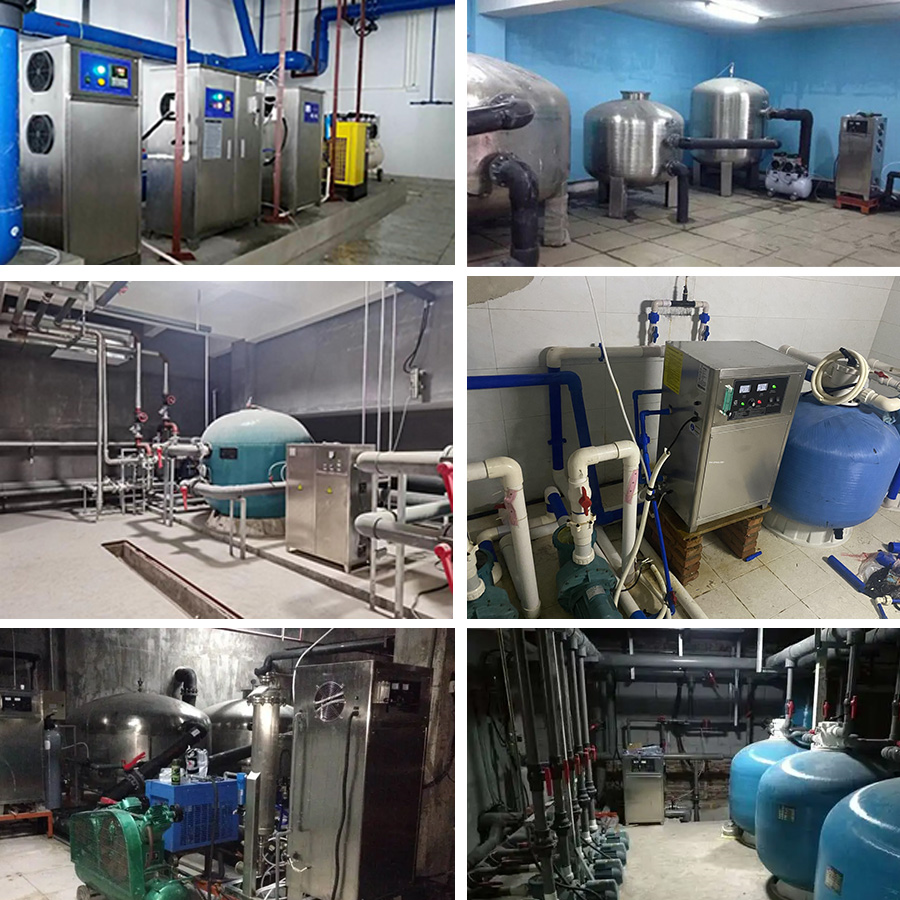Swimming pool water pollutants
Swimming pool water polluntion is mainly caused by swimmers. This makes it a very dynamic pollution, which is dependent on the number and types of swimmers. Swimming pool pollutants can be divided up into three groups: microorganisms, undissolved pollutants and dissolved pollutants.
Each swimmer carries a large number of microorganisms, such as bacteria, fungi and viruses. Many of these microorganisms may be pathogenic and can cause disease.
Undissolved pollutants mainly consist of visible floating particles, such as hairs and skin flakes, but also of colloidal particles, such as skin tissues and soap remains.
Dissolved pollutants can consist of urine, sweat, eye fluids and saliva. Sweat and urine contain water, but also ammonia, ureum, kreatine, kreatinine and amino acids. When these substances are dissolved in water, they cannot harm swimmers. However, when these compounds react with chlorine in swimming pool water, incomplete oxidation can cause chloramineformation. This causes the so-called chlorine-scent, which irritates the eyes and respiratory system. In a number of cases, stable compounds can be formed, which can only be removed from swimming pool water by water refresment .
Benefits of ozone application
Swimming water quality can be sufficiently increased by ozonization. This is not only a benefit when it comes to swimming, but it also guarantees healthy swimming water. Recent research has shown that children’s immune systems may be affected by swimming in chlorinated swimming pools. The health risks are also increased for swimmers that train twice a day .
Allthough purchasing an ozone system is relatively expensive compared to other techniques, one can save costs on a long term.
These are the main benefits of ozonisation:
1. Decrease in chlorine use
2. Improval of the filter and coagulant capacities. This leads to a reduction of coagulant use and less backwashing of the filter is required
3. Water use can be decreased, because of an increase in water quality
4. Ozone oxidizes organic and inorganic matter in the water, without the formation of unwanted byproducts, such as chloramines (which cause a chlorine-scent)
5. Chlorine scents can be fully diminished by ozone application
6. Ozone is a more powerful oxidant and disinfectant than chlorine. Certain chlorine-resistant pathogens (see ozone disinfection: resistant microorganisms) cannot multiply in water that is treated with ozone.
Customer Case
Ozone is besides an effective disinfection agent also a coaggulation agent, which will increase the performance of the sand- and active carbon filter. In these norms amongst others a temperature dependent ozone dose is used. For swimming pools with a water temperature of 28°C or 33 – 35°C an ozone dosage of respectively 0.8 and 1.2 gram per m3 is used.


